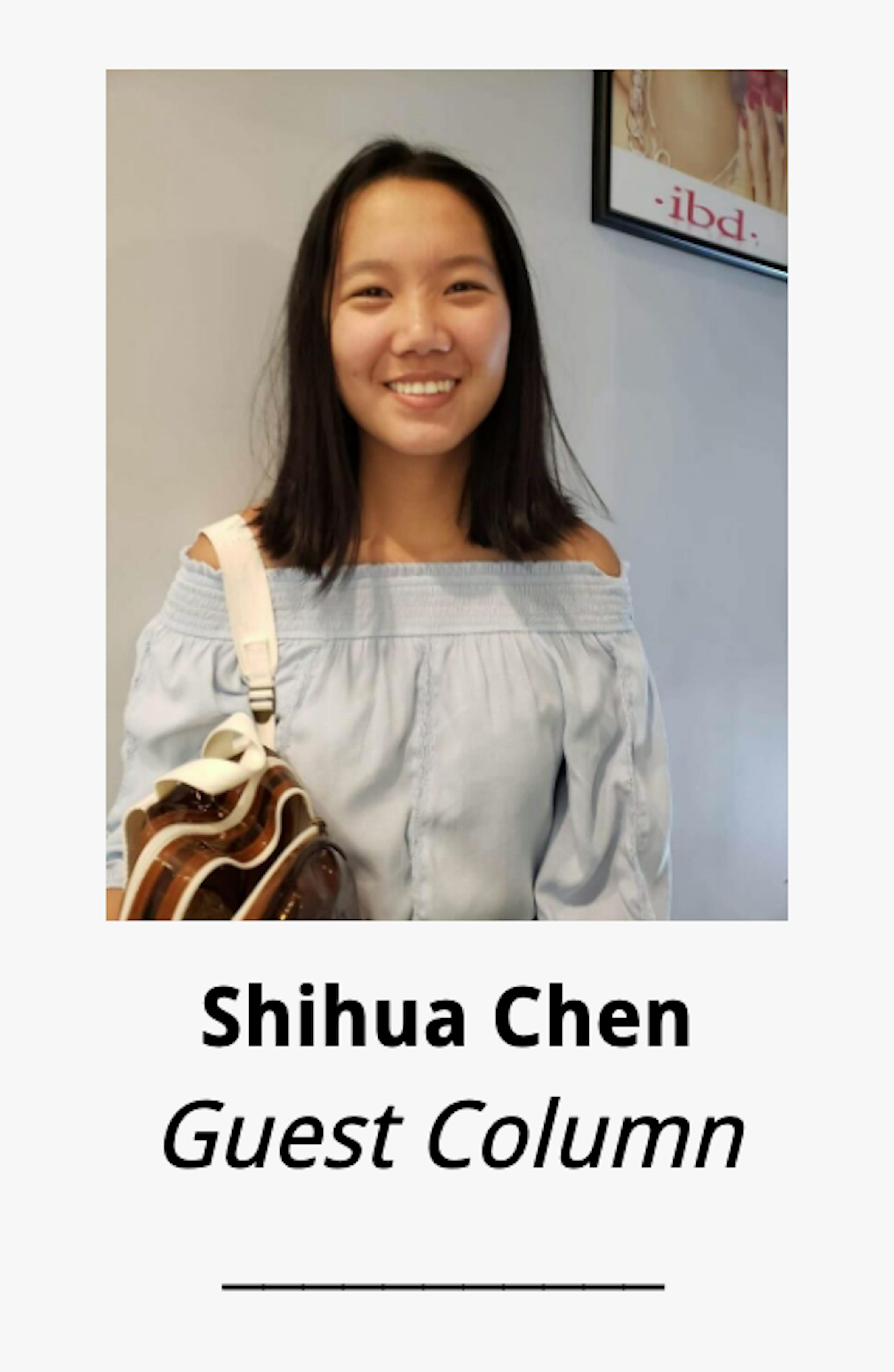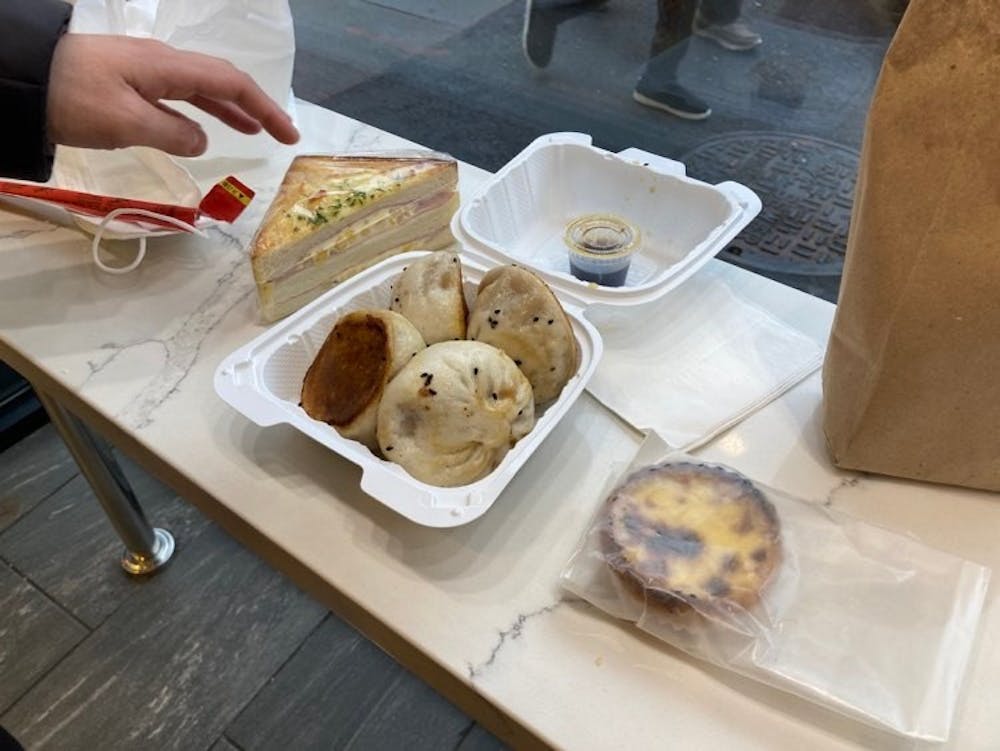
While walking through the hospital hallway at work the other day, I heard three, middle-aged women discuss in Mandarin one of the women’s new pair of brown leather boots and what shoe styles are currently “in.” A pang of nostalgia hit me, and I felt my eyes tear up, a familiar tingle rising in my nose that I suppressed by scrunching my face.
Ever since coming to college, listening in on strangers’ conversations in Mandarin reminds me of speaking the language at home with my family and brings about a feeling of comfort and connection. That day, it also reminded me that I hadn’t called home in a while and, instead of hurrying to my next destination like I usually do, I lingered behind the women just to experience the moment a bit longer.
I was born in a rural, farming village in Changzhou, China before moving to Singapore and subsequently settling down in the United States. My mom says that, when I was a toddler, I could speak and understand the Changzhou dialect, which I have now lost after my family moved. Now, every time she calls back home, the fear and anticipation of the language barrier discourages me from speaking to my relatives.
In high school, I started learning Mandarin on my own and connecting more with my culture after becoming friends with a Chinese international student in my physics class. But, ever since coming to college — and even more so after graduating — I have found limited time, energy and opportunities to continue improving my Mandarin, engaging with native speakers and immersing myself in the culture.
In private, Mandarin connects me to a birthplace I’m straining to preserve some sort of relationship to. In public, it isolates me from the country I now call home, and I become disenchanted when I realize that the language and culture I thought I knew are not what I thought they were. Language, specifically Mandarin, has become less a form of communication between myself and the outside world and more an effort to retain my identity as a Chinese American.
I have become scared of losing my culture, language and Chinese identity. My small, desperate — and, quite frankly, pathetic — attempts to hang on to what I have left — watching Chinese dramas, preferring Chinese cuisine even when I eat out, drinking tea made with the leaves my dad brought back from China during his last business trip — are all done in isolation.
Rarely do I converse with native speakers not only out of fear of judgment but also because of the social circles that separate us. But, culture and language can only exist when shared by a group of people.
I choose to consume my language and culture in preferred avenues and amounts, as specific as the dosage and type of medication a doctor prescribes her patient.
I feel more comfortable listening in on conversations than engaging in them. Yet, I yearn for more, to be a part of the conversation I overheard at work. Distance creates fondness, like the halo you see around someone you get along with before you really get to know them. But, I prefer to listen in, secretly indulging in and feeling part of a conversation that is not meant for all so that the magic isn’t broken by my limited Mandarin skills and the realization of how different I actually am.
However, as I grapple with this identity crisis of sorts, there is a realization and acceptance of the fact that I will never fully be authentically “Chinese” in the way that I have imagined and expected to be.
I sometimes wonder, “Am I really connected to this culture and language if it’s done in isolation?”
Is the language and culture that I know not authentic but, rather, analogous to something commodified, like cheap, Chinese takeout? Have I shaped it into something unrecognizable, palatable for an intended audience? Has it become something so different, molded many times over, that it is no longer recognizable to others?
As an immigrant raised in the U.S., it is inevitable that my values and the way I practice my culture will be distinct. The majority of Asians in the U.S. are immigrants, whose children are a fast-growing population of U.S.-born Asian Americans who are learning to navigate their bicultural identity and experiences growing up in the United States.
The Asian American experience is something that is relatively new and is still in the process of being shaped and developed into what we know it to be. Culture is also ever-changing, shaped by the people who share it, and it sometimes even branches off into something completely new.
For example, when the Korean pop (K-pop) boy group BTS expanded into the U.S. and their songs became more “Westernized” (such as title songs having all English lyrics), it didn’t necessarily make them any less Korean. Instead, it built upon the legacy and culture that they already created to develop a new, different generation of K-pop.
Just because the Chinese culture that I and other Chinese Americans experience is different doesn’t mean that it is any less authentic than the original. The culture in China is also rapidly changing in ways so stark that students studying in the U.S. find it hard to adjust each time they return to their home country during school breaks.
While it doesn’t hurt to continue to engage with and learn more about my culture rather than just listening in, I’ve come to realize the importance of understanding that what we view to be “authentic” is sometimes just a mirage.
Shihua Chen is a research assistant at Hopkins from Rancho Cucamonga, Calif.





